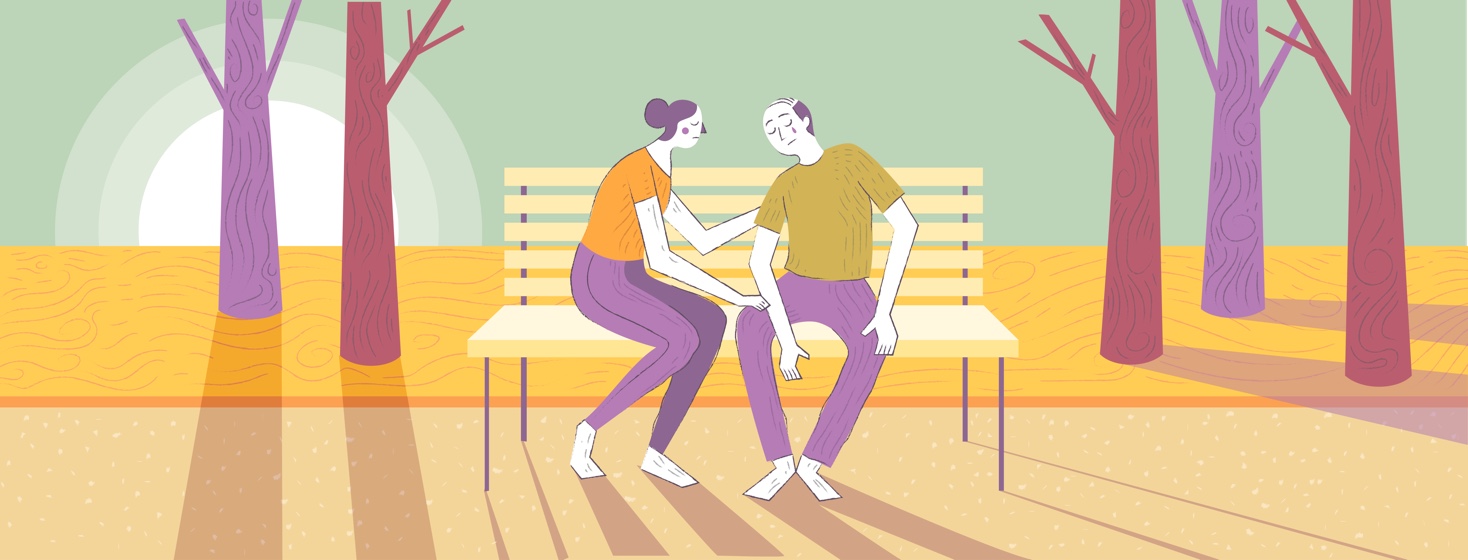Divorce
Author disclaimer--I'm an attorney in the state of Florida only. Nothing in this post or any other writing is legal advice and you should always seek legal advice if you have legal questions. Please read at your own risk!
Divorce with a terminal illness
I read an article recently about two disabled people who couldn't live together or even stay married in order to be able to keep all of their benefits. They both professed how sad this made them, that they had to leave behind an emotionally supportive relationship in order to keep government benefits. The stakes appear even higher when one spouse is healthy and maybe still working when the other spouse has been diagnosed with a serious illness.
Mutually beneficial
When I was practicing law, I did encounter several situations where getting divorced not because the feelings had faded, but because it was mutually beneficial in a variety of ways. I'm not specifically familiar with all of the factors that would be considered by any government agency when reviewing situations where a divorce is questioned; however, I do know that all options should be explored and divorce should also be on the table.
When one spouse has a terminal illness and the other spouse simply cannot handle it or needs to get out of the marriage, is very different from two adults making a financial decision that makes the most sense. I've also heard of several situations where one spouse used a diagnosis of metastatic breast cancer to take away children or assets, where the lack or need of health insurance became a gigantic obstacle.
Impact on children
Let me definitively say that any husband or wife who wants to use a terminal illness to separate a patient from their children deserves a special place in hell. I'm reminded of the BACA groups (Bikers Against Child Abuse) and how they would sit with children who had to testify against abusers. I'm just putting this out there -- we in the mets community should do the same. I'd be willing to testify on behalf of other women living with this disease and I'm sure others would be too. It is difficult for anyone else to understand that we are fine some days and not so fine on other days.
The point, at the end of the day, that I do want to make is that there are legal options. Sometimes the legal system can be utilized to one's advantage. When people don't, it's usually because someone didn't tell them. Legal solutions can be a bit cumbersome at times and it is necessary to find a lawyer who is familiar enough with a variety of things to find the best solutions, but the silver lining is that they exist.
Legal options
If you or someone you love is facing divorce, know that there are options. Since metastatic breast cancer decimates finances, the expense of a lawyer can often be overwhelming. Here are some suggestions if you are facing a divorce or another legal issue:
- Call your local bar association and ask about a medically needy group. Most bar associations have them. If not, then ask if there is a low or sliding fee group. The only caution I have with the latter is that the people taking the low fee cases are often new lawyers, so just be wary.
- If your local bar association does not have a medically needy group, then asking the same bar association if there are non-profits in the area is a good next step. Oftentimes, when the bar association does not have sufficient members participating, one or more may set up a non-profit and they work together.
- If you live near a law school, calling the school and asking if they have clinics can be super helpful. This is usually when a professor or other licensed lawyer will oversee students during a class to work on a real case. Nothing happens unless the licensed attorney signs off, but the students do the work. Some undergraduate legal studies classes will do the same thing, but I recommend going the law school route personally.
- Crowd sourcing. Lawyers are people too and you don't know who you know might know a lawyer who can help.
- Connect IV Legal Services, Inc. This is my non-profit. All I do is find lawyers who are willing to do pro bono legal work for Stage IV patients. I can get past gatekeepers at law offices a bit quicker than a layperson. I work my networks, my alumni groups, and my friends.
The legal system can be extremely daunting. It is often daunting for those of us who know how it works! It can also be the best problem solver that you will ever encounter. If you are dealing with something, speak up. You may be surprised at the solution.

Join the conversation